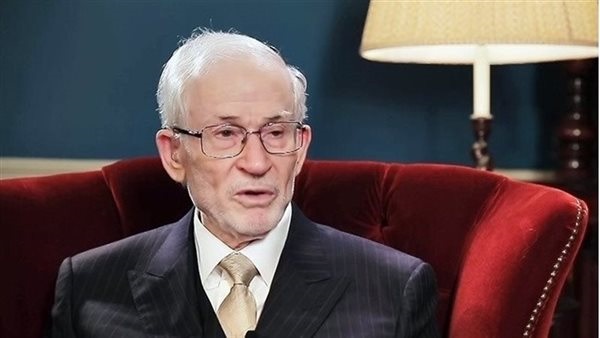Death of Ibrahim Munir: Mullah regime loses ‘connecting link’ with Brotherhood

“Some friends invited us to meet Iranian officials, and we, as owners of a cause, do not refuse to meet with any delegation that wants to meet and talk with us, in order to listen to points of view that may agree or disagree on some issues.”
These were the words of Ibrahim Munir, the acting General Guide of the international Brotherhood organization, whose death was announced on the morning of November 4 in the British capital, London, at the age of 85. Munir said these words when he was asked about his relationship with the Iranian regime, stressing that the group has a “friendly, strong and close relationship” with the Iranian regime.
Architect of the relationship
During the past years, leaked documents have emerged confirming the veracity of the relationship between the Brotherhood and the mullah regime in Iran, as both parties have a plan based on the formation of an “Islamic empire”, and Munir has played the largest and most prominent role during the last ten years to consolidate the relationship between Brotherhood leaders in Europe and the Supreme Leader’s regime in Iran, to the extent that he was called “the architect of the friendly relationship that exists between the Brotherhood and the Iranian Revolutionary Guard.”
In view of the role that Munir played in consolidating the bonds of the relationship with the mullah regime, a number of observers likened him to Youssef Nada, a Brotherhood leader and the group’s primary official responsible for communicating with Iran, such that he was called “the godfather of Iranian-Brotherhood relations.” He was one of the first leaders of the group to lead a delegation to visit Iran and meet its first leader after the success of the 1979 Iranian Revolution.
The strategic meetings between Munir and the mullah regime reveal the extent to which mutual interests and common gains.
Turkey meeting in 2014
In November 2019, the Intercept website and the New York Times released secret documents leaked to the Iranian intelligence, which revealed a meeting of Brotherhood leaders, headed by the group’s Deputy General Guide Ibrahim Munir, Brotherhood leader Mohamed Elibiary, and a number of Iranian officials, specifically from the Quds Force, in April 2014 in the Turkish capital, Ankara. During this secret meeting, a number of regional files were discussed, especially Syria and Iraq, as well as the implementation of a plan to target the territory of the Kingdom of Saudi Arabia.
A month after the announcement of this secret meeting, Munir came out to confirm the authenticity of its occurrence in 2014, saying during an interview with a Brotherhood channel broadcasting from London, “We know that Iran respects the Brotherhood and appreciates its credibility and positions. It was an opportunity to show them our opinion and the dimensions of our positions, and we fully stressed that we are in favor of working for the benefit of Islam and Muslims and the stability of the region.”
London meeting in 2017
In July 2017, London hosted the tenth international conference of the Islamic Unity Forum, which included a number of Brotherhood and Shiite leaders, including Ibrahim Munir and Jamal Badawi, director of the Islamic Media Foundation in Canada, in addition to a number of Shiite leaders close to Iranian Supreme Leader Ali Khamenei, foremost among them Secretary-General of the World Forum for Proximity of Islamic Schools of Thought Mohsen Araki and Iranian Shiite leader Ahmed al-Hasani.
Four days after the conference ended, on July 26, 2017, British media published pictures of Munir and Badawi gathering with Iranian Shiite leaders during a meeting hosted by the Abrar Shiite Foundation in London. During this meeting, Munir discussed with Araki ways to establish a strategic alliance between them by working continuously to hold such seminars and conferences.
Iran as the alternative haven
After Turkish President Recep Tayyip Erdogan’s tendency during the past two years to attempt rapprochement with some Arab countries, especially Egypt, he began to tighten the noose around the Brotherhood, expelled a number of its leaders, and closed their channels that were broadcasting from Turkish territory. Sources revealed in May 2021 that leaders of the international organization of the Brotherhood, headed by Ibrahim Munir, had made several contacts with officials of the Iranian Revolutionary Guards to ask them for help to provide an “alternative haven” for their members who were expelled by Turkey and to provide them with logistical support, especially since Iran has a Brotherhood branch represented by the Iranian Call and Reform Organization. Therefore, according to sources, it was natural for Tehran to welcome the Brotherhood's request.
With the death of Ibrahim Munir, both the mullah regime and the Brotherhood have lost the “connecting link” and the “architect of Iranian-Brotherhood relations”, making both sides search for a “replacement” to play this role.





